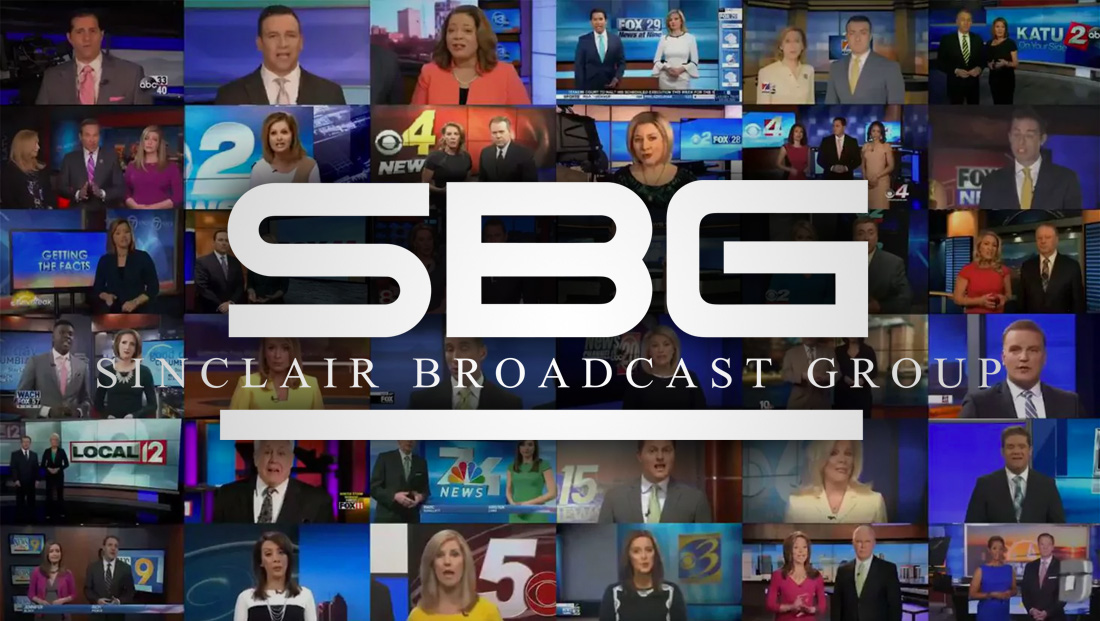Jimmy Kimmel’s show to return to Sinclair stations

Weekly insights on the technology, production and business decisions shaping media and broadcast. Free to access. Independent coverage. Unsubscribe anytime.
Sinclair Broadcast Group has announced it will begin showing “Jimmy Kimmel Live” once again on the ABC stations it owns across the country.
The company said it reached its decision after considering “thoughtful feedback from viewers, advertisers and community leaders representing a wide range of perspectives.”
The company, which is known for promoting right-leaning content, had announced it would be replacing Jimmy Kimmel’s late-night talker before the ABC television network announced it would put “Kimmel” on pause following the host’s controversial comments about the death of Charlie Kirk, which sparked backlash from the GOP, Donald Trump and FCC Brendan Carr.
After ABC announced it would not offer affiliates new or repeat episodes of Kimmel starting Sept. 17, 2025, and replaced the show with repeats of “Celebrity Family Feud,” Sinclair initially announced it would air a special on Kirk instead of carrying ABC’s offerings, though it later backtracked on those plans and carried the network-provided programming.
When ABC announced “Kimmel” would return Sept. 23, 2025, but Sinclair and Nexstar Media Group both opted to black out the program on their ABC affiliates until Sept. 26, 2025. Friday “Kimmel” shows are typically repeats.
Nexstar later announced plans to stop preempting the show as well.
Reports indicated the both owner groups were in “discussions” with the ABC network over the issue, though it was not clear what those discussions entailed.
In general, affiliates are required to air most network-provided programming, especially primetime and late-night talkers and news shows, though exceptions are made for breaking news coverage.
Some stations also have negotiated specific exceptions to carrying network programming or airing it at a different time than most of its peers due to local needs, though this has become increasingly rare.
There are other parts of the schedule that networks allow more flexibility, often in the overnight hours and select weekend slots, for local stations to preempt all or part of a program or air it a different time to accomodate its local programming and syndication schedules.
It’s not clear if Sinclair and Nexstar’s move to preempt “Kimmel” could potentially be a violation of their affiliate agreement with the network or how ABC may have responded to their blackouts.
There have been other high-profile times when local stations opted out of carrying network programming either due to issues with the content or fear of low ratings.
In 2009, when NBC launched the 10 p.m. eastern “Jay Leno Show” five nights a week, WHDH, the NBC affiliate in Boston owned by Sunbeam Television, announced it would preempt the show in favor of additional local news. Reports said the station was concerned over “Leno” tanking the lead-in to its own late local newscasts at 11 p.m.
The move pitted WHDH management against NBC, which reportedly soured the relationship between the two parties. Eventually NBC and Sunbeam broke up for good, with the NBC affiliate going to network-owned WBTS and WHDH becoming independent, though this was done in 2017 when the station’s current affiliation deal expired.
In some respects, it appears Sinclair and Nexstar may have been trying to use their muscle to get ABC to cancel Kimmel or cast themselves in better light with the Trump administration.
Nexstar has already announced plans to acquire Tegna, which would require significant changes to FCC guidelines on nationwide station ownership caps and limits in local markets. Sinclair has also announced it is exploring the sale of its stations.
In order to transfer a TV station license from one owner to another, the FCC has to give its final OK.
Earlier in 2025, the FCC had been blocking the transfer of CBS-owned television station licenses to Skydance Media after Trump accused the network of misleading editing of an interview that he damaged his political reputation. Although most legal experts agreed the suit was without merit, CBS parent Paramount Global opted to pay $16 million to Trump’s library fund to settle the suit.
Reports indicate the main incentive was to get Skydance’s purchase of Paramount to go through, though officially there were denials of any quid pro quo. The sale of Paramount was approved days after the settlement deal was reached.
Sinclair has gained a reputation for right-leaning moves, including forcing its stations to run editorials from one of its conservative executives. It also came under fire for plans to air a program questioning John Kerry’s war record shortly before the 2004 election, when Kerry’s name was on the ballot.
In 2018, many of Sinclair’s stations began airing promos featuring its anchors reading from near-identical scripts that some saw as a way to cast doubt on the media industry amid mounting messaging coming from the right. These promos were labeled as a “hostage videos.”




tags
ABC, Brendan Carr, Jimmy Kimmel Live, Nexstar Media Group, Sinclair Broadcast Group
categories
Broadcast Industry News, Featured